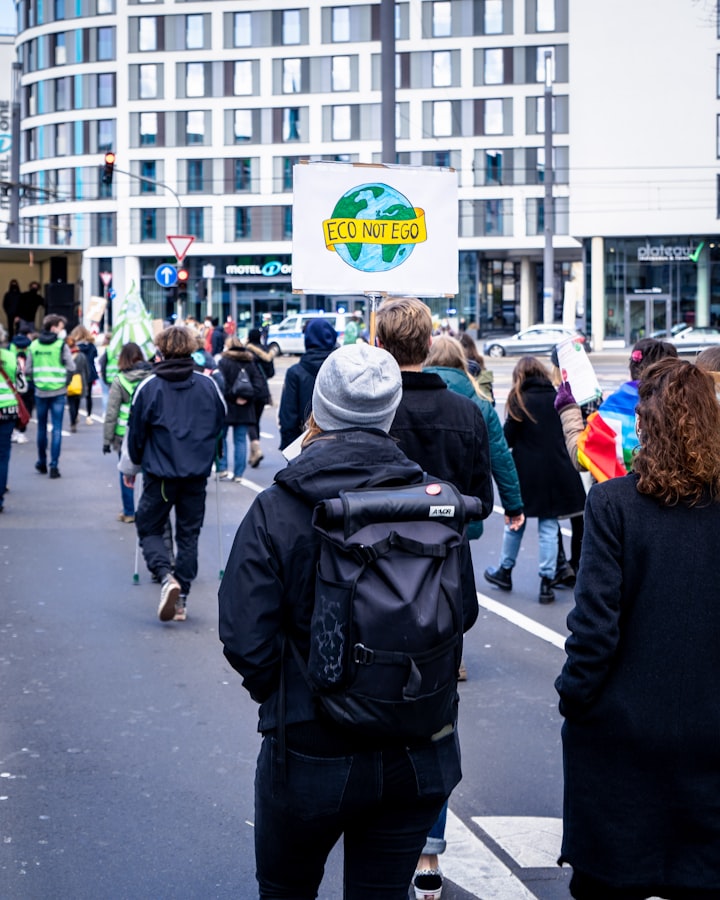Effects of "Climate change"
Climate change

Climate change refers to the long-term changes in temperature, precipitation, wind patterns, and other measures of climate that occur over several decades or longer. Climate change is primarily caused by human activities such as the burning of fossil fuels, deforestation, and agriculture.
The effects of climate change on the environment are far-reaching and include:
Rising global temperatures: This can lead to more frequent and severe heatwaves, droughts, and wildfires. It also causes the melting of ice in the polar regions and glaciers, which leads to rising sea levels and flooding.
Extreme weather events: Climate change can lead to an increase in the frequency and intensity of extreme weather events such as hurricanes, tornadoes, and floods. These events can cause significant damage to infrastructure and communities.
Loss of biodiversity: Climate change can alter habitats and change the timing of life cycles, which can have devastating effects on plant and animal species. Many species are already struggling to adapt to the changing climate, and some may not survive.
Ocean acidification: As the oceans absorb more carbon dioxide, the acidity of the water increases, which can harm marine life such as coral reefs, shellfish, and phytoplankton.
Food security: Climate change can affect crop yields and make it more difficult to grow certain types of crops, which can lead to food shortages and higher food prices.
Climate change also has significant impacts on human health and communities. Rising temperatures can increase the spread of disease, and extreme weather events can displace people from their homes and cause economic disruption.
It's important to note that, the effects of climate change are interconnected and reinforcing, leading to a cascade of impacts, which will exacerbate the negative effects. It's crucial to take action to reduce greenhouse gas emissions and adapt to the changes that are already happening.
There are several ways to reduce the effects of climate change and mitigate its causes:
Reduce greenhouse gas emissions: One of the main causes of climate change is the burning of fossil fuels, which releases large amounts of carbon dioxide and other greenhouse gases into the atmosphere. To reduce emissions, individuals, businesses and governments can invest in renewable energy sources such as solar and wind power, and reduce the use of fossil fuels.
Increase energy efficiency: By making buildings and appliances more energy-efficient, we can reduce the amount of energy we need to power our homes and workplaces, which in turn reduces greenhouse gas emissions.
Invest in sustainable transportation: Encourage the use of public transportation, walking and biking, rather than cars. Electric and hybrid vehicles are also a good option.
Promote sustainable agriculture and forestry: Sustainable farming practices and reforestation can help to absorb carbon dioxide from the atmosphere, and also helps to improve soil health and biodiversity.
Adapt to the changes: As the effects of climate change are already happening, it's important to adapt to the changes that are already happening. This can include building sea walls to protect against flooding, and planting drought-resistant crops.
Educate and raise awareness: Raising awareness about the causes and effects of climate change can help to encourage individuals and communities to take action to reduce their own carbon footprint.
It's important to note that, addressing climate change requires a collaborative effort from governments, businesses, and individuals. We all have a role to play in reducing our greenhouse gas emissions and adapting to the changes that are already happening.
In conclusion, climate change is a complex and pressing issue that affects the entire planet. The effects of climate change on the environment are far-reaching and include rising global temperatures, extreme weather events, loss of biodiversity, ocean acidification, and food insecurity. These effects also have significant impacts on human health and communities.
It's crucial to take action to reduce greenhouse gas emissions and adapt to the changes that are already happening. There are several ways to do this such as reducing the use of fossil fuels and increasing the use of renewable energy sources, increasing energy efficiency, promoting sustainable transportation, promoting sustainable agriculture and forestry, and raising awareness about the issue.
It's important to remember that addressing climate change requires a collaborative effort from governments, businesses, and individuals. It's crucial to take action now to reduce the effects of climate





Comments
There are no comments for this story
Be the first to respond and start the conversation.